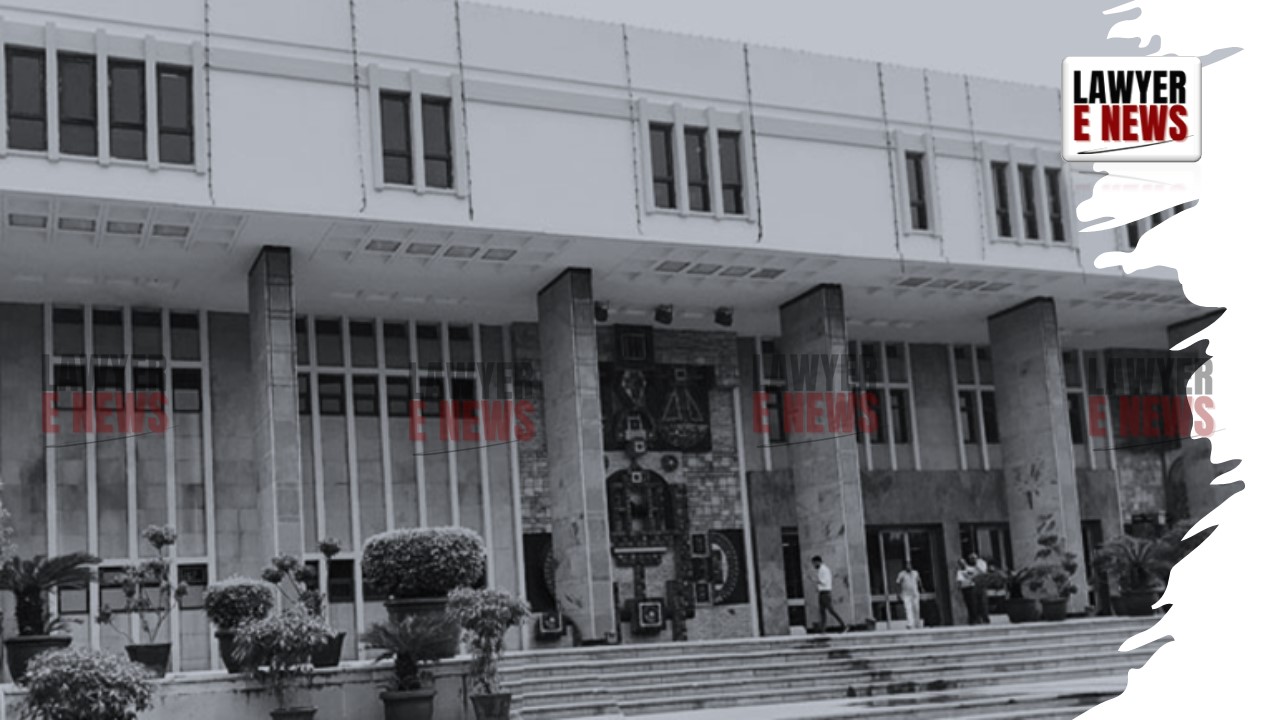-
by Admin
15 February 2026 5:35 AM



Delhi High Court dismissed a writ petition filed by Anita Gupta Sharma, a practicing advocate at the Saket District Court, challenging the decision of the Chamber Allotment Committee regarding the re-allotment of Chamber No. 103. The chamber, previously occupied by two advocates, became available for re-allotment after the death of one of the allottees and the upgrade of the other to a single-occupancy chamber. The Court found that the allotment process, although lacking transparency, was conducted in accordance with the seniority-based rules.
The Court emphasized that the Chamber Allotment Committee should ensure that future vacancies are transparently notified to all eligible advocates, providing equal opportunities for chamber allotment. The petitioner’s claim that she was unfairly denied the chance to apply for Chamber No. 103 due to a lack of public notice was addressed, but the Court ultimately ruled that there were no grounds to set aside the allotment made to the respondents.
The petitioner, Anita Gupta Sharma, a long-standing member of the Saket Bar Association, challenged the allotment of Chamber No. 103 to Respondents Jitender Singh and Rajesh Passey, both senior advocates. The petitioner argued that her application, based on medical grounds, was not considered, and that the re-allotment of the chamber was carried out in an opaque and arbitrary manner, violating established procedures.
The chamber became vacant when one of the original allottees, Mr. Vinod Gupta, passed away, and the other allottee, Mr. Jagat Singh Basta, was upgraded to a single-occupancy chamber. The Chamber Allotment Committee re-allotted the vacant slots in Chamber No. 103 to Jitender Singh and Rajesh Passey, both of whom had applied for an exchange of chambers.
The primary legal issue was whether the allotment of Chamber No. 103 was done in a fair and transparent manner and whether the petitioner’s claim for the chamber, based on her medical grounds, was unjustly ignored. The petitioner argued that the lack of public notification deprived her and other eligible advocates of the opportunity to apply for the chamber.
Representing the petitioner, Senior Advocate Puneet Mittal highlighted that the chamber allotment process bypassed procedural fairness as her request for Chamber No. 103 was not even considered. He contended that the petitioner’s long-standing association with the Saket Courts, along with her and her husband’s health conditions, should have merited a consideration of her application for the chamber.
On the other hand, Dr. N. Pradeep Sharma, representing the respondents, argued that the chamber allotment was made in accordance with seniority, and the petitioner’s request was submitted after the decision to allot the chamber to the respondents had already been finalized. Respondents Jitender Singh and Rajesh Passey, both senior to the petitioner, had applied earlier, and the Chamber Allotment Committee had resolved to grant them the chamber in accordance with established practice.
"Failure to Notify Vacancy Raises Concerns, But Does Not Warrant Reversal": High Court
The Court acknowledged that the Chamber Allotment Committee failed to formally notify the vacancy for Chamber No. 103 to the general body of lawyers, raising concerns about the transparency of the process. However, the Court observed that the lack of transparency did not materially affect the outcome, as the seniority of the respondents would likely have entitled them to the chamber even if the vacancy had been notified.
In its decision, the Court stressed the need for greater transparency in the chamber allotment process, stating:
"General assumptions about knowledge within professional circles cannot substitute for a formal, transparent process. Transparency in public dealings—even within professional bodies—is not merely a matter of custom but a principle of fair and reasonable conduct that must be upheld."
However, the Court also pointed out that the petitioner’s medical grounds—based on her husband’s health rather than her own—did not provide sufficient basis to interfere with the committee’s decision. The Court noted that seniority remained the guiding principle in such allotments, and Respondents Singh and Passey, being senior to the petitioner, had a stronger claim to the chamber.
The Delhi High Court, while recognizing procedural lapses in the chamber allotment process, concluded that there were no sufficient grounds to overturn the re-allotment of Chamber No. 103 to the respondents. The Court dismissed the petitioner’s plea but directed the Chamber Allotment Committee to ensure that future vacancies are notified to all eligible members to maintain fairness and transparency.
Date of Decision: October 14, 2024
Anita Gupta Sharma v. Chamber Allotment Committee & Ors.
